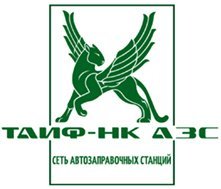Rifkat Minnikhanov: ‘We would like unmanned vehicle developments to be centralised’
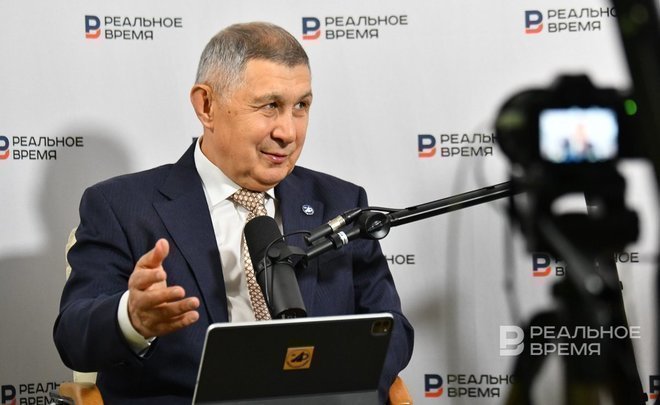
Expanding the boundaries of the use of intelligent transport systems is one of the goals of the programme for the development of the Russian transport system. Changes have been made in the programme recently, the document has been added with new stages on its implementation in the regions, including in Tatarstan. At the beginning of the year, the Ministry of Transport and Road Management of the Republic of Tatarstan and ROSDORNII signed an agreement to establish a pilot zone to enable experimentation and testing technology for intelligent transportation systems. This zone will soon become the territory of Alabuga SEZ. Rifkat Minnikhanov, the director of Road Safety State Institution, told more about this during the online conference of Realnoe Vremya.
Self-driving will be tested in Alabuga
Modernisation of transport system of Russia assumes the active introduction of innovations related to IT solutions. Today, intelligent transport systems (ITS) are increasingly coming to the rescue in matters of road safety. In accordance with the Safe High-Quality Roads national project, ITS began to be implemented in urban areas with a population of over 300 thousand people, and the first results of this work have already yielded results. Over the last two years, the number of accidents has fallen by 12,7%, deaths on the roads — by 12,3%, wounded — by 12,8%. It is noteworthy that the republic has worked in this direction longer than other regions of Russia.
“We have been engaged in the development of digital transport systems in Tatarstan since 2010. Within this project, we developed a set of directions to ensure road safety. In 2016 and 2018, the republic conducted a specialised conference on its," Director of Road Safety State Institution Rifkat Minnikhanov said at the conference of Realnoe Vremya.
Over two years, the republic has received almost 830 million rubles from the federal government on the implementation and development of intelligent transport systems. The funds are allocated for the creation of urban systems to control the movement of passenger transport, the installation of meteorological stations and so-called smart traffic lights, and the introduction of other digital innovations.
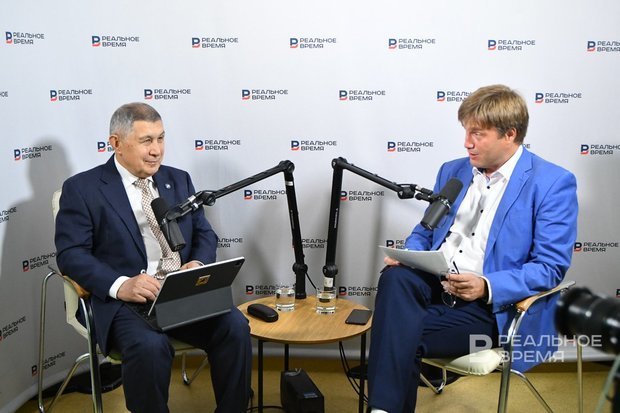
A major issue in ensuring road safety is the creation of ITS. But their creation and testing requires special polygons. The plans for their appearance in Tatarstan were announced a year ago, when at Kazan Digital Week forum, the agency under the authority of Rifkat Minnikhanov, Road Safety, and the management of Alabuga SEZ signed the agreement on the establishment of a pilot area for testing highly automated transport systems. It is planned to put it into operation at the end of the second quarter of 2023, after which all types and models of cars of the future are planned to be tested on its tracks, and it is planned to fulfill their interaction with the road transport infrastructure.
Within the framework of the same project, in February of this year, the Ministry of Transport and Road Management of Tatarstan and ROSDORNIA signed a similar agreement. It provides construction and installation works on connecting technological equipment pilot zones to external networks and electricity on the territory of Alabuga.
“We already have a site, where unmanned vehicles are tested in the framework of Kazan-Telematics, including unmanned truck created in KAMAZ. Today, a second ground is being created — on the territory of Alabuga special economic zone. There is an agreement with ROSDORNII, which we are implementing here today," Rifkat Minnikhanov said.
The first experimental area in Tatarstan, where they started to test self-driving cars, was Innopolis. This site was approved under the resolution of the government of Russia. And since 2018, an unmanned taxi from Yandex has operated on the city streets of Tatarstan's digital city. At that time, it became the first in Europe. “Its operator may not be inside the car, but it has the ability to control them," said the head of Traffic Safety.
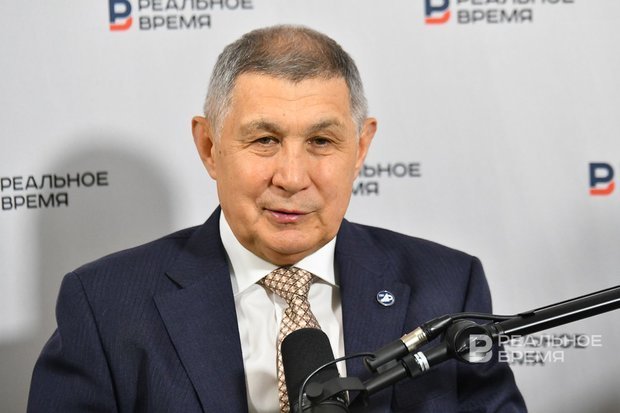
ITS developers and unmanned vehicles consolidation
KAMAZ is also actively working on the creation of unmanned vehicles, there are already real developments and products, said Minnikhanov. In June, commercial traffic of unmanned mainline tractors of Naberezhnye Chelny production is planned to be launched along M11 highway, which will take on the mission of transporting goods between Moscow and St. Petersburg. At the recently held international economic forum in Kazan, the Tatarstan auto giant presented another highly intelligent development — the unmanned passenger car Atom. However, the issue of further development of unmanned vehicles in Russia requires the consolidation of designers and manufacturers, says Rifkat Minnikhanov:
“In these matters, we would like, and the Ministry of Digital Development is in solidarity with us, Yandex, Sber and others who are associated with the development of unmanned vehicles to centralise this topical issue. In terms of that today common standards, a unified approach to the solutions are being created in so many different ways, but here, unfortunately, each of these companies sells all its developments by itself.”
The work is underway in other areas, to a greater extent with the social direction: “It is the creation of an adaptive system for control and monitoring of the transport network (EPUTS), public transport, which involves the interests of the population. This system is designed to collect and analyse traffic on the city roads in real time.” Developments in these areas are still carried out at the expense of budgetary funds, but, according to Rifkat Minnikhanov, business participation is needed here: “If this is a service, then the commercial component, of course, should be actively manifested here. This will be a separate topic of discussion on the digital forum that will be held in Kazan in September.”

Kazan Digital Week 2023 expects almost 1,5 times more participants and guests
The topic of the introduction of intelligent transport systems will be included in the agenda of Kazan Digital Week forum, which is held this year from September 20 to 22. These are special platforms for the management of the transport complex and infrastructure facilities, identification and navigation of moving vehicles. Today in Russia, five federal projects related to ITS are adopted for implementation. In addition, there is an instruction from the president of the country in the field of artificial intelligence development: “We say: digitalisation and end-to-end technologies. Artificial intelligence is present everywhere, and these system solutions can be implemented in many directions," Rifkat Minnikhanov said during the online conference.
As the organisers of international events expect, this year the number of visitors and participants is going to exceed last year's level of 17 thousand, reaching about 25 thousand people. At the moment, more than 50% of the site has already been reserved. The forum will be held with the support and participation of the Ministry of Digital Development of Russia — the organising committee of the forum this year is headed by the head of the Russian Ministry of Digital Development, Maksut Shadaev.
The event, despite the geopolitical situation, will retain the status of international — as head of Road Safety SI and Chairman of the board of the Association for promotion of digital development of the Republic of Tatarstan Rifkat Minnikhanov believes, foreign companies will be at least 1% of the total number of participants. Willingness to participate in the forum have already been expressed by representatives of Bulgaria, Belarus, Uzbekistan, UAE, Turkmenistan, Croatia, Indonesia and several other countries.
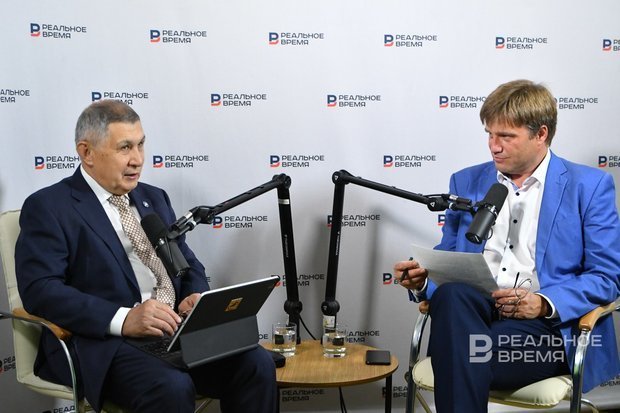
During the press conference he also revealed part of the innovations of the upcoming forum. For example, the competition of unmanned mini-car models, cyber-battle between the students of the universities await the participants and guests for the first time. Partners are also preparing their proposals. Also during the forum, participants will choose IT leaders in 10 ways — from ETS and public administration to education and agricultural sector. The KDW-2023 programme will consist of two parts, exhibition and business. Within the framework of the latter, presentations by representatives of scientific schools working in the field of digital solutions and exhibiting companies are expected. In general, as noted by Rifkat Minnikhanov, in various sections of the event in the past, there may be about 700 speakers:
“My dream — that doctors of science with application solutions to speak on this site. Today, we, unfortunately, haven't come to that point yet. But there is a business that solves a specific state objectives and which will be presented at the site of our digital forum.”
Official partner:
